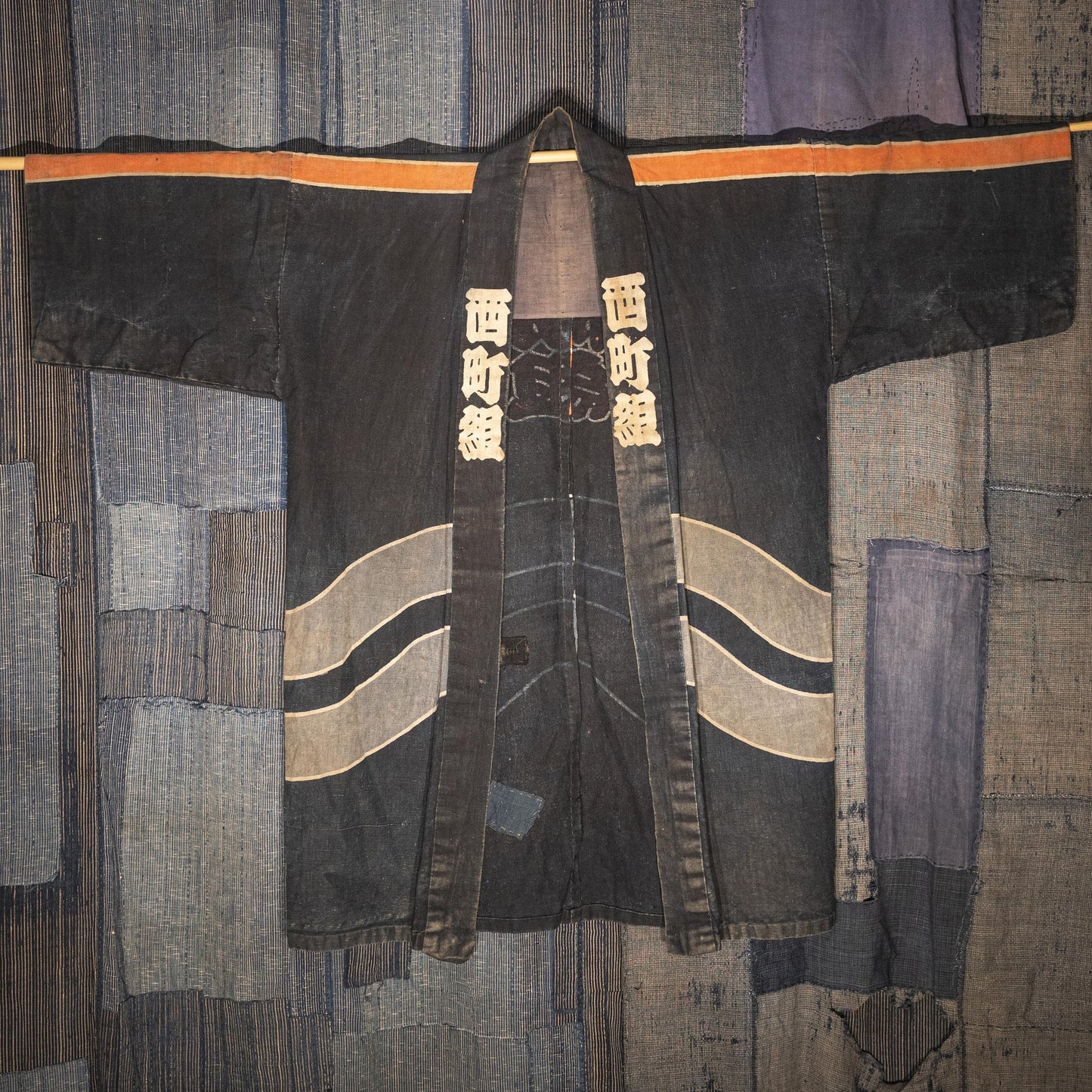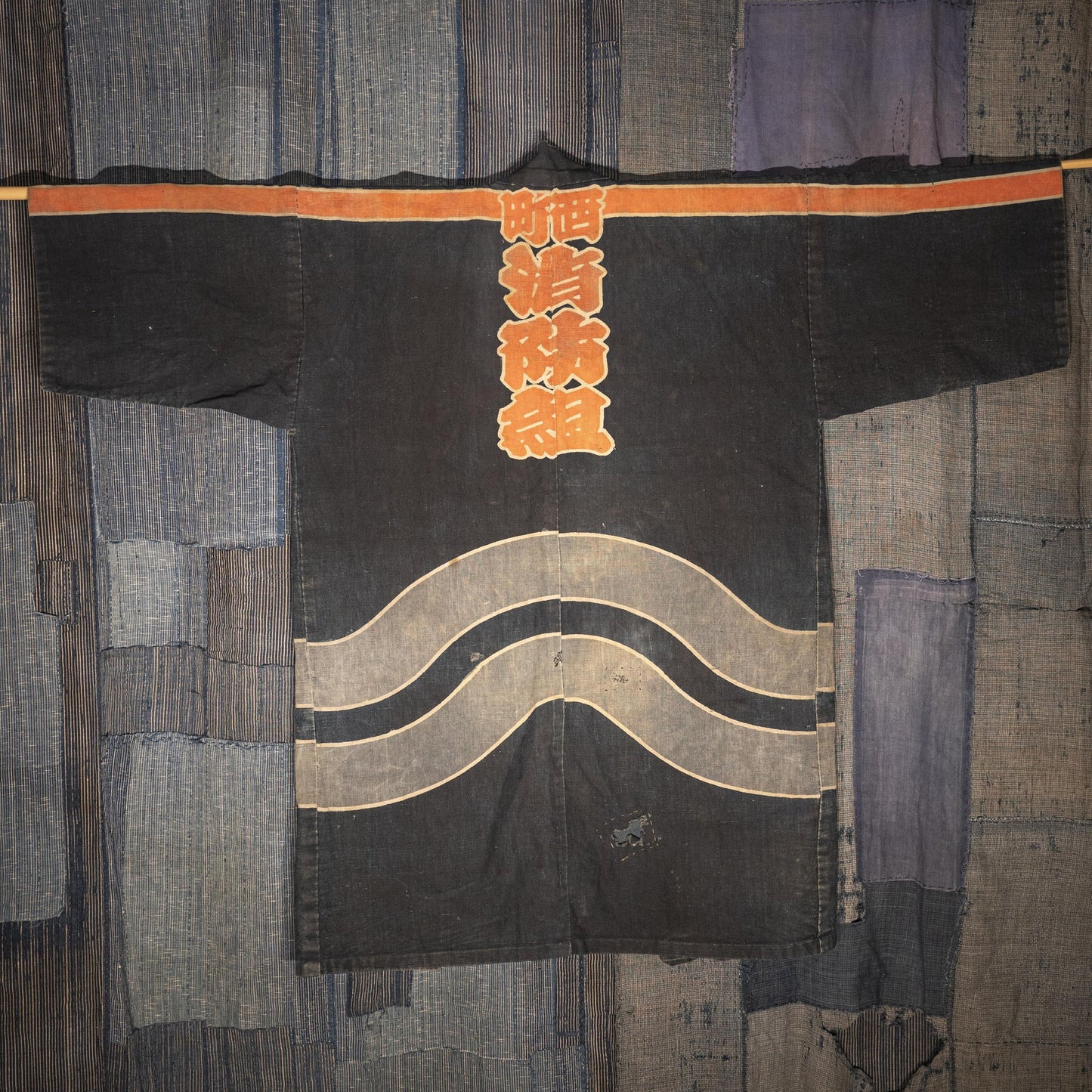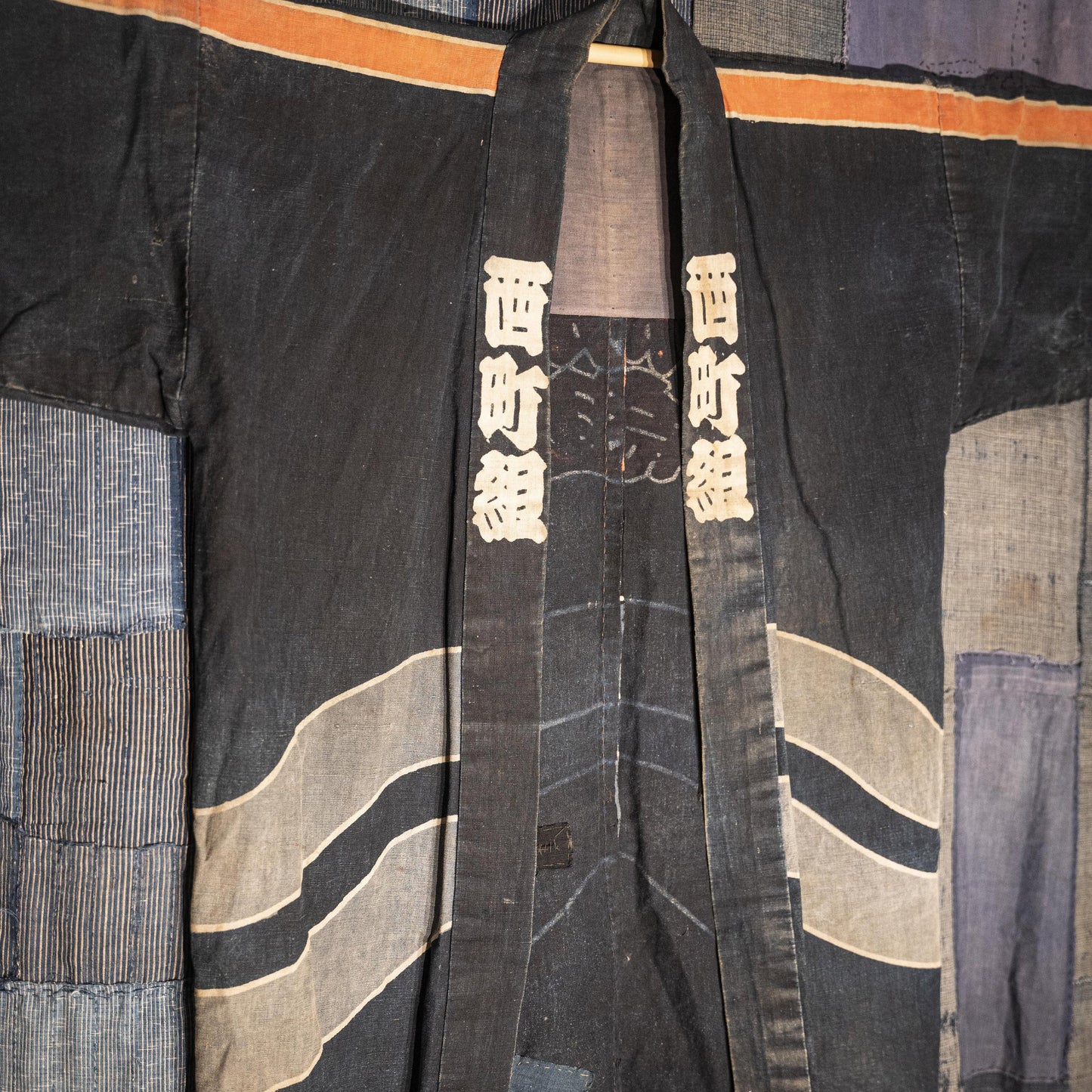HANTEN Firefighter Jacket from Nishimachi
HANTEN Firefighter Jacket from Nishimachi
Couldn't load pickup availability
This rare Japanese fireman’s jacket (hikeshi-banten) embodies both resilience and artistry, crafted from indigo-dyed cotton and emblazoned with bold fire brigade insignia. Worn by Edo- and Meiji-period firefighters, these garments were functional uniforms as well as powerful symbols of courage, camaraderie, and civic pride. The jacket reflects the Japanese tradition of combining utility with striking visual design.
The jacket features deep indigo cotton with bold white painted or resist-dyed wave motifs across the body, signifying water—fire’s natural counterforce. The upper section is accented with a warm persimmon-colored band, giving the garment a commanding presence.
Large bold kanji characters identify the brigade affiliation. The front bears the brigade name in white, while the reverse displays the characters prominently in red, marking the jacket’s identity when worn in action. Such symbols fostered unity and recognition within local firefighting groups.
While highly practical, hikeshi-banten were also canvases of graphic design. The stylized wave patterns symbolize protection, purification, and strength—appropriate motifs for those who risked their lives battling urban fires.
During the Edo and Meiji periods, fires were frequent and devastating in Japan’s wooden cities. Fire brigades (hikeshi) were composed of organized groups of townsmen, whose distinctive jackets served both as protective wear and as badges of honor. Jackets like this were often soaked in water before use, providing some resistance to heat and flame. Today, they stand as cultural artifacts of bravery, solidarity, and the artistry of working-class Japan.
Features
-
Type: Hikeshi-banten (fireman’s jacket)
-
Material: Indigo-dyed cotton
-
Color: Deep indigo with white wave motifs, persimmon-red and white brigade insignia
-
Design Elements: Painted wave symbols, brigade kanji on front and back
-
Era: Likely late Edo to Meiji period (19th to early 20th century)
-
Condition: Vintage, with wear and patina consistent with age and functional use
Share






